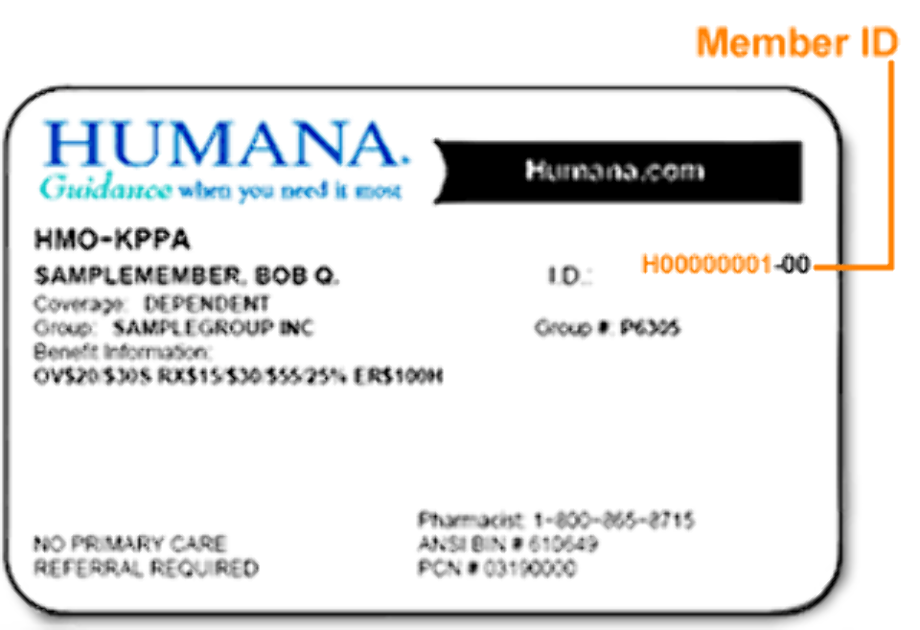Starting with human insurance, this topic delves into the crucial role it plays in safeguarding individuals and families against unforeseen circumstances. Understanding the various aspects of human insurance is essential in today’s dynamic world.
This comprehensive guide covers the definition, history, types, benefits, factors to consider, and future trends of human insurance, providing valuable insights for making informed decisions.
Definition of Human Insurance
Human insurance refers to a type of insurance coverage that provides financial protection in the event of illness, injury, disability, or death. The main purpose of human insurance is to help individuals and their families mitigate the financial risks associated with unexpected events that can impact their health and well-being.
Common Types of Human Insurance
- Health Insurance: Covers medical expenses for illness and injury.
- Life Insurance: Provides a financial payout to beneficiaries in case of the insured individual’s death.
- Disability Insurance: Offers income replacement in case of a disability that prevents the individual from working.
- Long-Term Care Insurance: Covers the costs of long-term care services, such as nursing home care or in-home assistance.
Importance of Human Insurance in Today’s Society
Human insurance plays a crucial role in modern society by providing individuals with the peace of mind that they and their loved ones will be financially protected in times of need. With the rising costs of healthcare and the uncertainties of life, having adequate human insurance coverage can help ensure that individuals can access necessary medical care, maintain their standard of living, and safeguard their financial future.
History of Human Insurance
Insurance in some form has been around for centuries, with the earliest recorded instances dating back to ancient civilizations. However, the concept of human insurance as we know it today began to take shape in the late 17th century in Europe.
Origins of Human Insurance
The first known form of human insurance can be traced back to the guilds in ancient China and Babylon, where members contributed to a fund that would provide compensation in case of illness, injury, or death. These early forms of insurance laid the groundwork for the development of modern human insurance.
Evolution of Human Insurance
In the 17th century, the first modern insurance company, Lloyd’s of London, was established, marking a significant milestone in the development of human insurance. Over time, human insurance expanded to include a wide range of policies covering health, life, disability, and more.
Adaptation to Societal Changes
As societies evolved and faced new challenges, human insurance adapted to meet the changing needs of individuals and communities. The industrial revolution, world wars, and globalization all influenced the development of human insurance, leading to the diverse range of insurance products available today.
Types of Human Insurance
Insurance for humans comes in various forms to cater to different needs and circumstances. Here are some common types of human insurance policies:
Life Insurance
Life insurance provides financial protection to the beneficiaries of the policyholder in the event of their death. This type of insurance ensures that loved ones are financially secure and can cover expenses such as funeral costs, debts, and ongoing living expenses.
Health Insurance
Health insurance helps individuals cover medical expenses by paying for hospital stays, doctor visits, prescription medications, and other healthcare services. It is crucial in providing access to quality healthcare without incurring substantial out-of-pocket costs.
Disability Insurance
Disability insurance offers income replacement to individuals who are unable to work due to a disability or illness. This type of insurance ensures that individuals can maintain their standard of living and meet financial obligations even when they are unable to earn an income.
Long-Term Care Insurance
Long-term care insurance provides coverage for costs associated with long-term care services, such as nursing home care, assisted living facilities, and in-home care. This type of insurance is essential for individuals who may require extended care as they age.
Each type of human insurance serves a unique purpose in safeguarding individuals and their families from financial risks and uncertainties. It is important to carefully consider one’s needs and circumstances when selecting the right insurance policies to ensure comprehensive coverage and protection.
Benefits of Human Insurance

Human insurance offers various advantages that can provide individuals and families with peace of mind and financial security.
Protection Against Medical Expenses
Human insurance helps cover the costs of medical treatments, hospitalization, and surgeries, ensuring that individuals can access necessary healthcare without worrying about the financial burden.
Income Protection
In the event of disability or critical illness, human insurance provides a source of income replacement, ensuring that individuals and their families can maintain their standard of living even when they are unable to work.
Financial Security for Loved Ones
In the unfortunate event of the policyholder’s death, human insurance provides a lump sum payment to the beneficiaries, offering financial support to the family members left behind.
Peace of Mind
Knowing that they are protected by human insurance, individuals and families can enjoy peace of mind, knowing that they have a safety net in place to handle unexpected events and emergencies.
Factors to Consider When Choosing Human Insurance

When selecting human insurance, there are several key factors that individuals should take into consideration to ensure they choose the right coverage for their needs. Personal circumstances play a crucial role in determining the type of human insurance that would be most suitable. Here are some tips for evaluating different human insurance options:
Coverage Needs
- Assess your current and future needs to determine the level of coverage required.
- Consider factors such as age, health status, dependents, and financial obligations.
- Choose a policy that provides adequate coverage for medical expenses, disability, and other potential risks.
Cost and Affordability, Human insurance
- Compare premiums, deductibles, co-pays, and out-of-pocket expenses across different insurance plans.
- Ensure that the cost of the policy fits within your budget without compromising on essential coverage.
- Look for discounts or incentives that can help reduce the overall cost of the insurance.
Network Coverage
- Check if your preferred healthcare providers, hospitals, and specialists are included in the insurance network.
- Consider the flexibility to choose out-of-network providers if needed and the associated costs.
- Ensure that the insurance plan covers services and treatments that you may require in the future.
Policy Features and Benefits
- Review the benefits offered by each insurance plan, such as preventive care, prescription drug coverage, and mental health services.
- Look for additional perks like wellness programs, telemedicine services, and 24/7 customer support.
- Understand the policy exclusions, limitations, and waiting periods before making a decision.
Future Trends in Human Insurance

The human insurance industry is constantly evolving, driven by technological advancements and changing consumer needs. Let’s explore some of the emerging trends that are shaping the future of human insurance.
Integration of Artificial Intelligence (AI) and Machine Learning
With the increasing amount of data available, insurance companies are leveraging AI and machine learning algorithms to streamline processes, enhance customer experience, and improve risk assessment. These technologies enable insurers to analyze data more efficiently, personalize policies, and detect fraudulent activities in real-time.
Usage-Based Insurance (UBI)
Usage-based insurance, also known as telematics insurance, is gaining popularity as it allows insurers to track customers’ behavior through IoT devices installed in vehicles or homes. This data-driven approach enables insurers to offer more personalized premiums based on individual risk profiles, ultimately leading to fairer pricing and improved customer satisfaction.
Parametric Insurance
Parametric insurance is a type of insurance that pays out a predetermined amount based on specific triggers, such as natural disasters or other predefined events, rather than traditional loss assessment. This innovative approach allows for faster claims processing and payouts, reducing the administrative burden on insurers and providing quicker financial relief to policyholders in times of need.
Digital Transformation and Customer Engagement
As more consumers prefer digital interactions, insurance companies are investing in digital transformation initiatives to enhance customer engagement, improve communication channels, and offer seamless online services. From virtual agents to mobile apps, insurers are adapting to meet the evolving needs of tech-savvy customers and provide a more convenient and efficient insurance experience.
Ethical and Sustainable Practices
With growing concerns about environmental sustainability and ethical business practices, insurance companies are increasingly focusing on incorporating green initiatives and sustainable policies into their operations. From offering eco-friendly insurance products to supporting social causes, insurers are aligning their strategies with ethical principles to attract socially conscious consumers and contribute to a better future for all.
Wrap-Up
In conclusion, human insurance serves as a vital safety net in ensuring financial stability and peace of mind. By exploring the diverse facets of human insurance, individuals can make well-informed choices for a secure future.
Commonly Asked Questions
What is human insurance?
Human insurance is a policy that provides financial protection to individuals and their families in case of unforeseen events such as illness, disability, or death.
How do personal circumstances impact the choice of human insurance?
Personal circumstances such as age, health status, occupation, and financial goals play a significant role in determining the most suitable human insurance policy.
What are the key factors to consider when selecting human insurance?
Key factors include coverage options, premiums, deductibles, policy limits, and exclusions. It’s essential to assess individual needs and long-term financial objectives.
